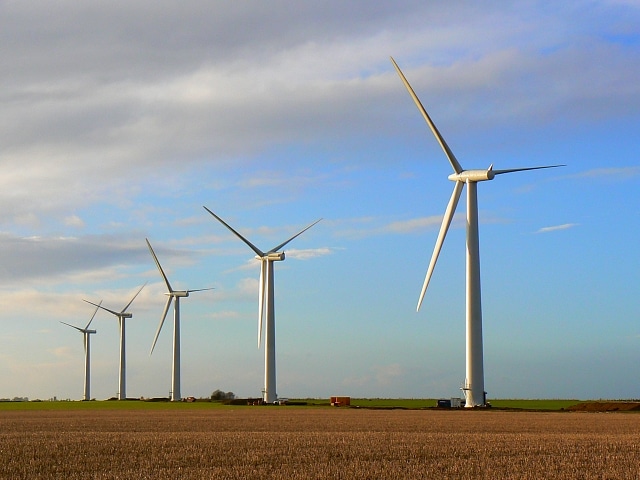July will perhaps best be remembered as the month the UK Government cut all the “green crap”.
In total, nine environmental policies were scrapped: subsidies for wind, solar and biomass will be cut along with the Green Deal which aimed to help homeowners improve energy efficiency, most of the Green Investment Bank will be sold off, incentives to buy greener cars were watered down, the Zero Carbon Homes initiative was killed off, fracking will be allowed under national parks, green taxes were dropped and, finally, the Swansea Bay tidal project looks close to being chopped.
At first it started slowly, as Amber Rudd raised concerns that solar subsidies “might” be cut. A hop, skip and a week later, solar was just one of many cuts made in rapid-fire succession.
It seems ‘low-carbon’ is the word de jour. Rudd explained during the Energy and Climate Change Committee’s inquiry into the Department’s objectives for this parliament that decarbonisation is the “most important approach” – within this, both renewable energy and low-carbon energy will play a role, she said.
Rudd stressed that shale gas in particular will be an “important part of the energy mix… It’s an important part of our decarbonisation targets because it’s a low-carbon source of energy.”
But industry, academics, and fellow politicians weren’t so pleased. The government’s cuts to renewable energy subsidies will leave the industry “in limbo” and send a “worrying signal” about the UK’s commitment to tackling climate change ahead of the Paris climate conference, warned Angus Macneil, chair of the Energy and Climate Change Committee.
Ed Davey, former Liberal Democrat secretary of state for energy and climate change, said: “It would appear that the Conservatives are taking an anti-renewables stance based on ideology, not on evidence.”
It all begs the question: what happened to the ‘greenest-ever’ Conservative party?
And, to top it all off, July ended with revelations that Rudd failed to disclose her brother is a top financial lobbyist with energy clients. Whoops.
But in case all of this isn’t enough for you, here are some other stories you may have missed this month:
Kochs Lobby Europe
At the beginning of July we broke the story that the Koch brothers have been lobbying Europe to the tune of half a million pounds over three years.
Our investigation revealed the Kochs have been lobbying on the environment, energy and free trade. More specifically, we ask whether this means TTIP and natural gas.
The story caught a few people’s attention as it was picked up by both the Guardian and Grist, and was shared widely online and in energy news bulletins.
Climate Deniers
Then, in the middle of July, DeSmogBlog revealed that coal giant Peabody is still denying the science – it submitted a report to the White House claiming that greenhouse gases are a “non-existent harm”.
We followed this up with a look at exactly where Peabody is getting its information. It turns out it’s from a fellow coal owner, the climate sceptic Matt Ridley. In fact, Ridley is the most cited individual in the report followed closely by Lord Lawson’s Global Warming Policy Foundation (GWPF). Seems Peabody has a fondness for British climate denial.
What’s more, as Ridley joins the wave of Conservative criticism of renewable energy subsidies, we revealed he has no problem with the European farm subsidies he benefits from (despite previously criticising these subsidies as well).
But it seems the influence of Ridley and Lawson is waning according to Lord Deben, the Conservative peer leading Britain’s independent Committee on Climate Change, who said: “Their influence is less and less I am happy to say. The facts of science, life and measured views of people like Pope Francis are undermining them. They have become just rude instead of arguing and they are so touchy,”
This hasn’t stopped the GWPF from recruiting two MPs onto its Board of Trustees: Peter Lilley and Graham Stringer.
Lancashire Fracking Saga
Lancashire County Council’s decision at the end of June to reject both of Cuadrilla’s planning applications didn’t sit well for said climate deniers. Both Lord Lawson and Peter Lilley appeared on the BBC’s Daily Politics to call for the decision to be overturned.
The Council’s decision was quickly vindicated however when Defra (finally) released a full copy of the previously redacted fracking report. The revelations that shale gas extraction could lower property values, increase insurance costs, and damage the environment served to reinforce Lancashire Council’s fracking refusal.
But the battle will not end here. Cuadrilla is now appealing the decision, and, with planning appeals typically lasting about six months, the saga is likely to continue into 2016.
Do you have any questions or comments? Got any suggestions for investigations? Feel free to email me at [email protected]
Like us on Facebook, follow us on Twitter and check out our mailing list to stay up to date on our latest work!
Photo: Brian Robert Marshall via Geography Creative Commons
Subscribe to our newsletter
Stay up to date with DeSmog news and alerts







